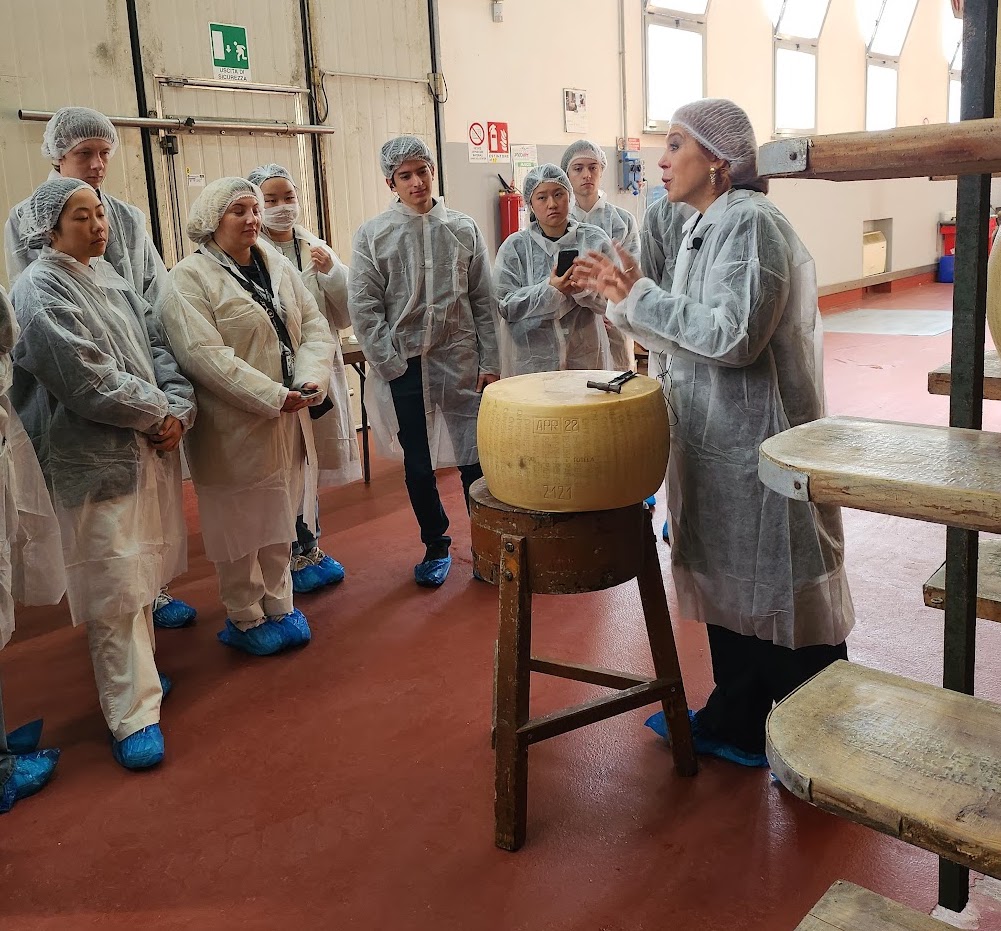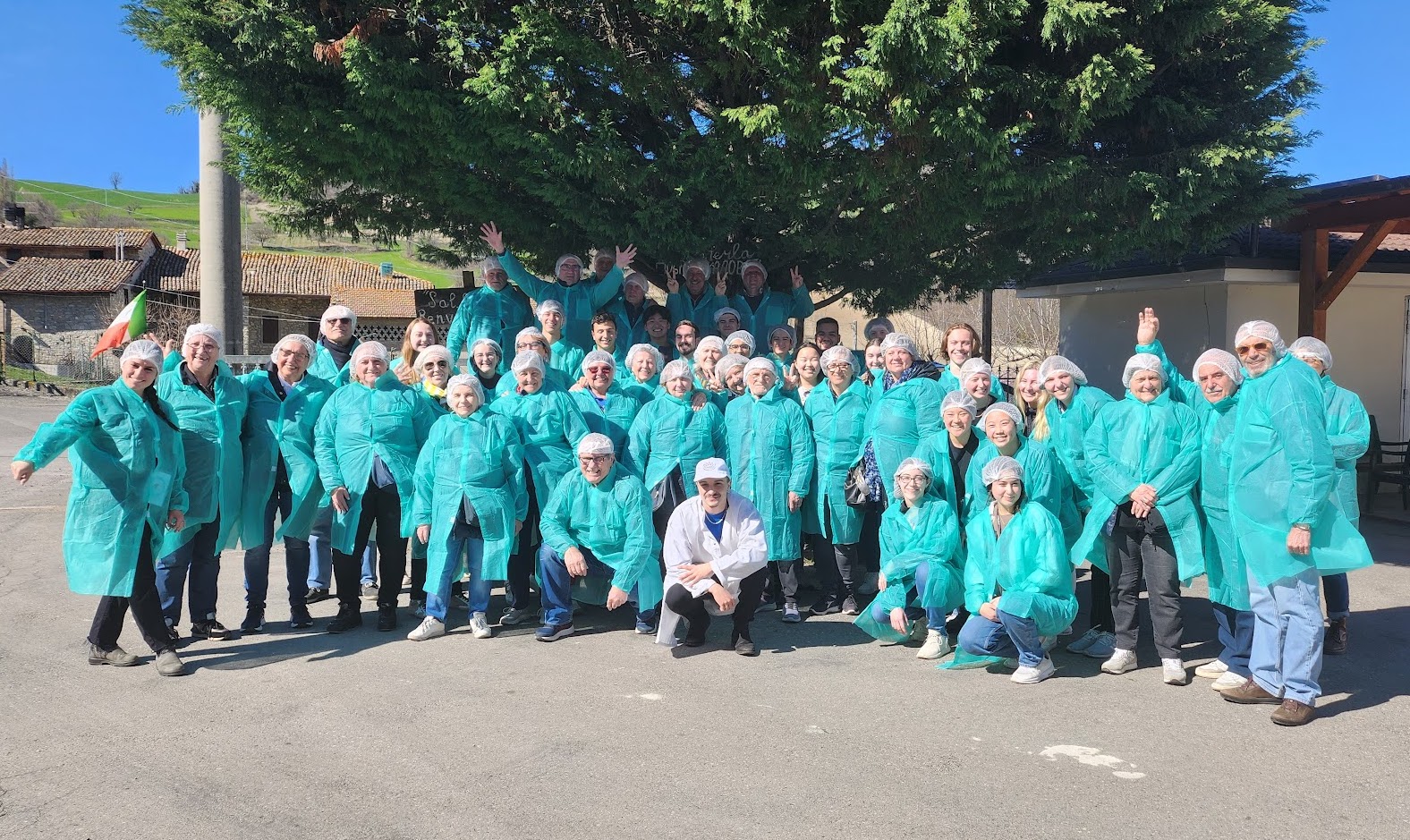Expansion and Tradition: The Business of Food in Italy

Within Italy, the region of Emilia is known for its cuisine, which includes some of the country’s most famous ingredients and dishes. Thanks to this rich tradition, the area offers the perfect opportunity to study businesses connected to food production. In order to better understand the relevance of this sector to Italy’s economy, a group of students from the Mitchell E. Daniels, Jr. School of Management at Purdue University visited two companies that produce some of Italy’s most beloved food products. This study tour was part of an intensive seminar developed and taught by local faculty Clive Woollard for a spring break program in Florence.
The group first headed to Parma, to the cheese-making facilities of Caseificio Santo Stefano. As part of the Parmigiano Reggiano consortium, Santo Stefano is one of the few places in Italy certified to produce authentic parmigiano cheese. After gearing up with sterile clothes, students followed local guide and food blogger Ilaria Bertinelli on a full tour of the facilities. Throughout the visit, the group observed, step by step, the various phases of production, from the selection of milk to the placement of curds in the molds. The crowning moment was the visit to the caseificio’s impressive storage facilities, where wheels of parmigiano are aged for several years. The visit concluded with a discussion of cheese culture in the Parma region, accompanied by a tasting of parmigiano samples. The visit to Santo Stefano provided an excellent example of the tension within food systems in Italy, between traditional food-making processes and the desire to meet the rapidly increasing demand for local products on the global market.
The final part of the study tour was near Modena, at the Acetaia San Matteo, a family-owned company that makes the famous balsamic vinegar of Modena. San Matteo is a small business, run by the Cocchi family, which has been making vinegar for generations. The two owners, Sandra and Luciano Cocchi, welcomed the group into their farmhouse, where the entire production process takes place. The couple enthusiastically explained the traditional process, showing both the equipment and the barrels used to properly age the vinegar. Some lucky students even got to taste 100-year-old vinegar from Luciano’s personal reserve! Following up on in-class discussions about sustainable food systems, students then asked the Cocchis about their business model and the challenges that a small family-owned business must face. After a small aperitivo of local products, all nicely paired with Cocchi vinegar, the group boarded the bus to return to Florence.
By visiting several businesses, ranging from large consortiums to small family-owned companies, students explored the role of traditional food products in Italy’s modern economy, acquiring an important cross-cultural perspective on the business of food production.

Accent has extensive experience designing experiential learning activities that complement and build on the learning objectives of faculty-directed courses. Please reach out to Accent’s Program Development team at development@accentglobal.com if you are interested in discussing these ideas for your current or future study abroad program.